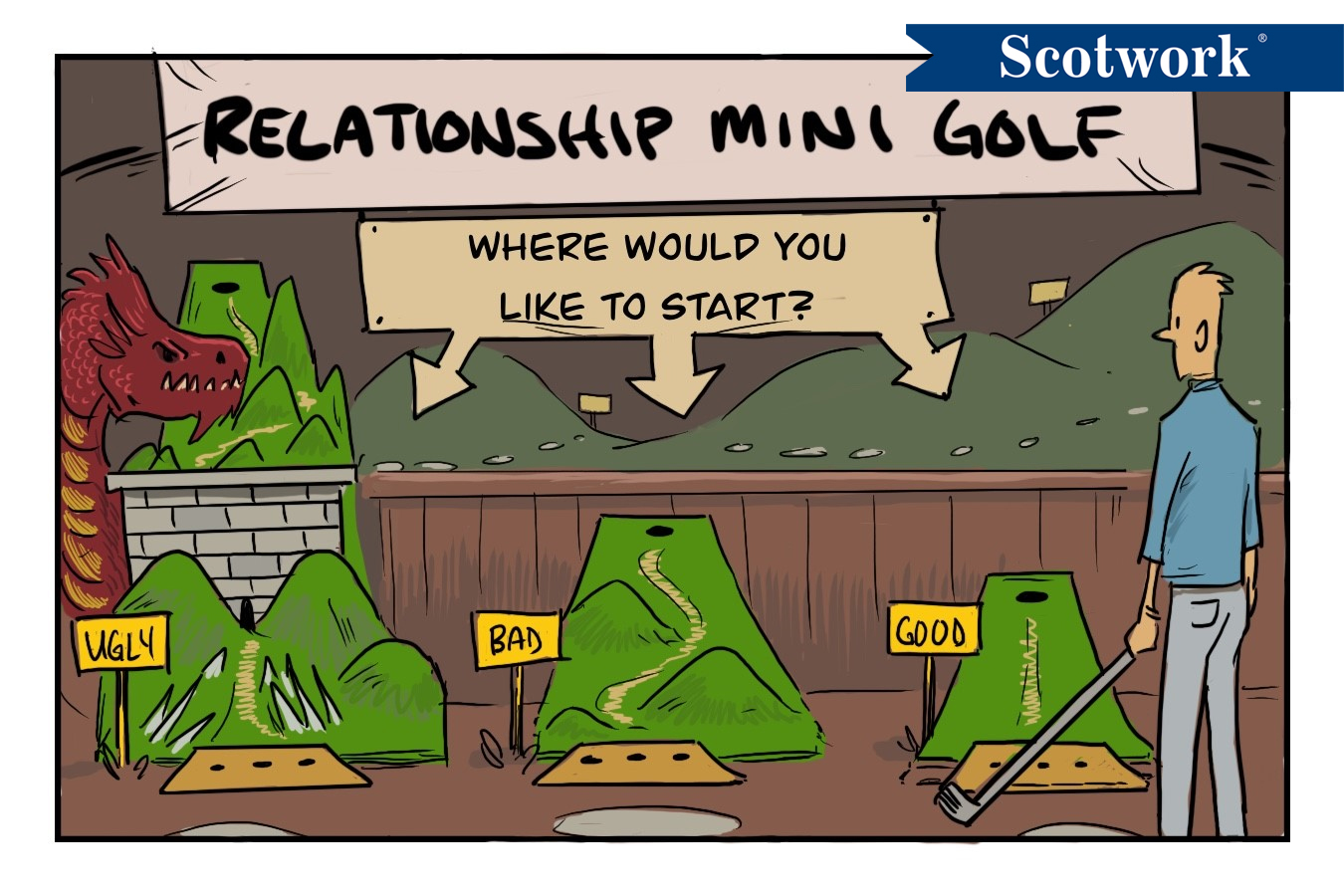Here we are in February Plus. What’s the “plus”? It’s leap year, and we get one extra day in February. And that’s good because there are a lot of celebrations and remembrances in February. Some of these include Black History Month, Presidents’ Day, Groundhog Day, the Super Bowl — and who can forget Valentine’s Day? There are lots of reasons for us to come together in February, and what better month to focus on relationships?
We’re going to focus specifically on relationships within a negotiation. These can help us get deals done, but they can also stand in the way of getting deals done. We all know a good relationship is important, but its impact on a negotiation is still sometimes underestimated. This is where we begin our relationship journey: relationship appreciation — the good, the bad, and the ugly.
The Good Relationship
Negotiations can strain any relationship. Starting talks from a place of a positive and collaborative relationship can help diffuse the strain. Particularly if it’s necessary to have a difficult conversation or there are broad areas of disagreement. A good relationship can help keep emotions in check.
Good relationships are typically based on trust and sharing information. The better a relationship is, the more likely we are to share information, because we’re more open and don’t feel that the other side will use information against us.
Lastly, collaboration and problem-solving more easily grow from good relationships. Even within a negotiation, we have to do some problem-solving in order to move the negotiation forward. The better the relationship, the easier it is to overcome those obstacles together.
The Bad Relationship
Bad relationships almost always give a negotiation an air of competition, with parties focused on winning or not allowing the other side to win. That adds more strain to the negotiation process than is necessary to get a deal done.
In a bad relationship, there’s no trust, which prevents openness and transparency. We’re less likely to share information, which directly impacts the efficiency of getting a deal done. It also limits the value that can be created, because a lack of information stifles creativity.
Finally, bad relationships make people feel the need to be right. They can’t lose face or be embarrassed. Therefore, they tend to spend lots of time defending their positions instead of seeking to understand. All of this only goes to fuel the competitive nature of the entire negotiation.
The Ugly Relationship
When a relationship goes from bad to worse, a negotiation can become destructive. People blinded by an ugly relationship seek to win at all costs. In fact, the negotiation usually devolves into exercises of toxic persuasion, threats, and negotiators imposing their will.
In these destructive negotiations, emotions are high and respect for the other side is low. Participants are more willing and likely to walk away, possibly burning bridges out of spite, which closes the door on future talks.
The status of your relationship going into a negotiation impacts the outcome. You can also use negotiation to improve your relationship. In our subsequent posts for February, we’ll explore ways to improve your relationship throughout your negotiation.
We Can Help You Improve Your Negotiating Relationship.
Relationships can help us get deals done, but they can also stand in the way of getting deals done. When you want to start well and end better, draw on Scotwork experts’ nearly 50 years of real-world experience.

